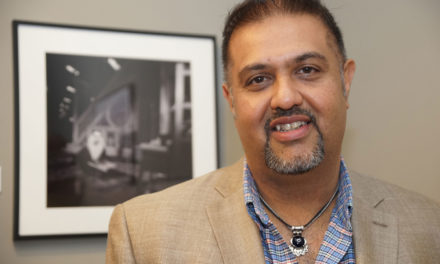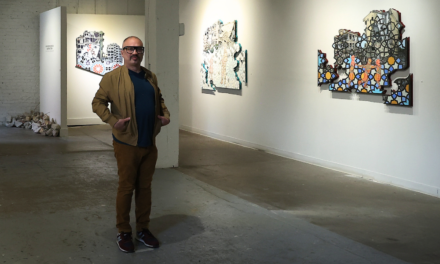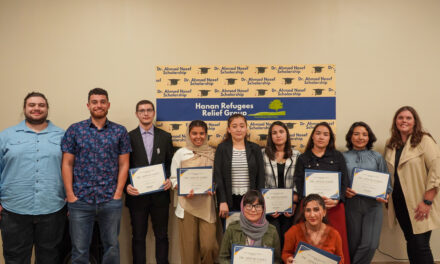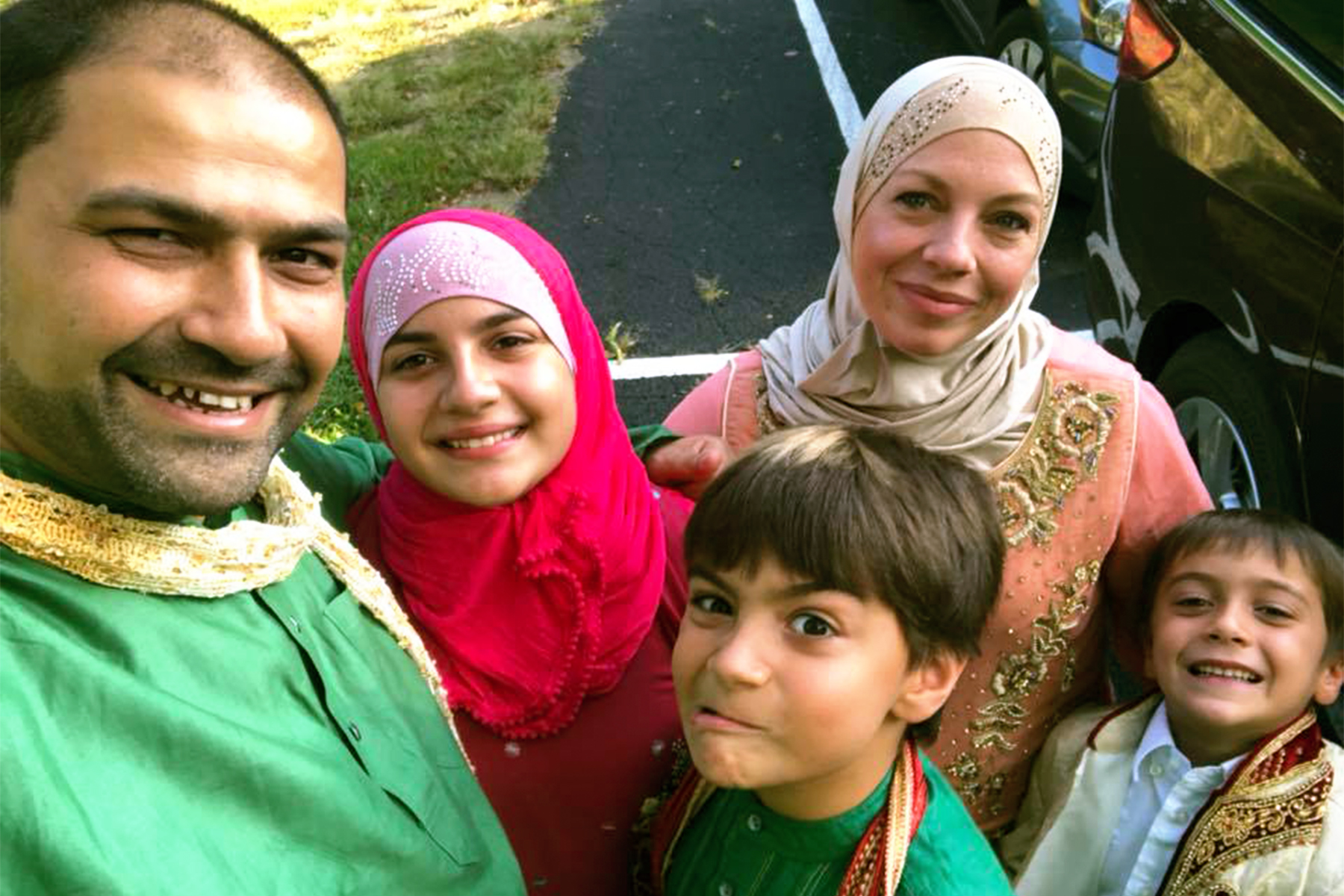
This year, the holy month of Ramadan occurred at a time of lengthening days and shorter nights. Alicia Razvi, a Muslim farmer in Stevens Point, posted a story about its lessons and challenges on her Facebook page:
. . . a sad pit in my stomach formed as I took my morning stroll through the yard. In our fasting exhaustion yesterday, we forgot to put the meat birds in their enclosure. An owl killed 16. We lost nearly half our flock in one night. . .Sad kick in the gut or not, we did begin planting and worked steadily, digging, fertilizing, compost-filling, planting, mulching, caging, and watering. We took a break from the hottest part of the day and then resumed. All told we put in 96 tomatoes, 156 peppers and 31 eggplant. . . The feeling of doing the best by these vegetables took hold. And as [we] went in for the night, we made double sure that the meat chickens were secure. A long hot day tinged with guilt over a big screw-up [was] edged with accomplishment. Life, I guess, just feels a little more stark in the absence of food and drink to comfort.
The next day Mrs. Razvi wrote that she and her family had enjoyed a day of rest, though it felt impossible, on the micro farm, not to “have any work one day a week” and she felt “weary” and “unable to cope with the coming week of farm work and keeping the fast.” But then, she wrote, after a nap and an “easy dinner,” of store-bought lasagna, “I am driven to send these final days of Ramadan out with love and purpose. That is the power of rest.”
Mrs. Razvi, 41, is the owner-operator of Wooly Thyme Micro Farm in Stevens Point. Along with her husband, who also works “off farm,” and their three children, she raises halal poultry for the Muslim community in her area. And her farm is part of the local Community Supported Agriculture program. “June 10 through October 7, we provide our customers with a bag of vegetables weekly” which, beginning in spring, means onions and green garlic, herbs, lettuce, and bok choy, but will include staples like potatoes, carrots, peppers, tomatoes, and eggplant later in the season.
The Wooly Thyme farm also provides what she calls “value added things” like tomato salsa, baked goods, loaves of bread,pickles, and jams. “My husband is from India, so we bring that to the table as well” with chutneys and Indian-influenced foods. These product are sold both through her CSA program and at winter farmers markets around the state.
Born in Oshkosh and raised Catholic, Mrs. Razvi’s family and her farm are part of a faith journey that began when she was a student at UW-Stevens Point.
As she relates, “I was always very curious in my life and testing the waters of other religions.”A critical turning point in her life occurred on a Christian retreat while she was a student at UW-Stevens Point.“We were singing and we were praying and that was fine.” However, the retreat included missionaries from Iran and Iraq who announced, Mrs. Razvi said, “We are going to pray for the lost souls of Islam. They are not seeing the light.”
Hearing these words, “In my head, I heard the needle scraping across the record,” she said. “That is not what I thought of God. I knew Muslims believed in the same God as I did. I knew that they were not lost souls. At that moment I knew I was not truly a Christian.”
Mrs. Razvi knew a couple of Muslim students on campus, and “I started asking them as many questions as I could. I had found a hole in my faith, and I wanted to find the hole in somebody else’s.”
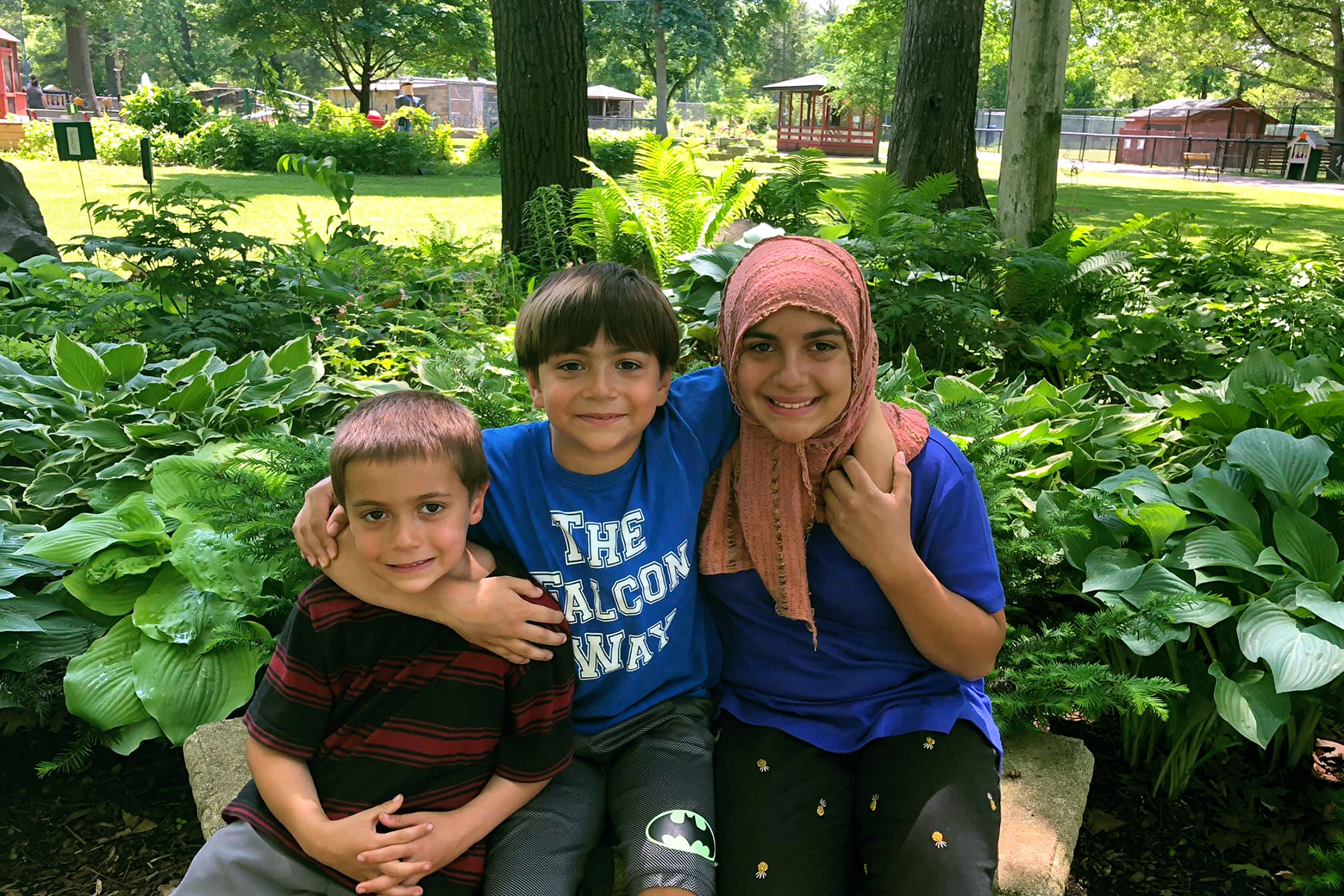
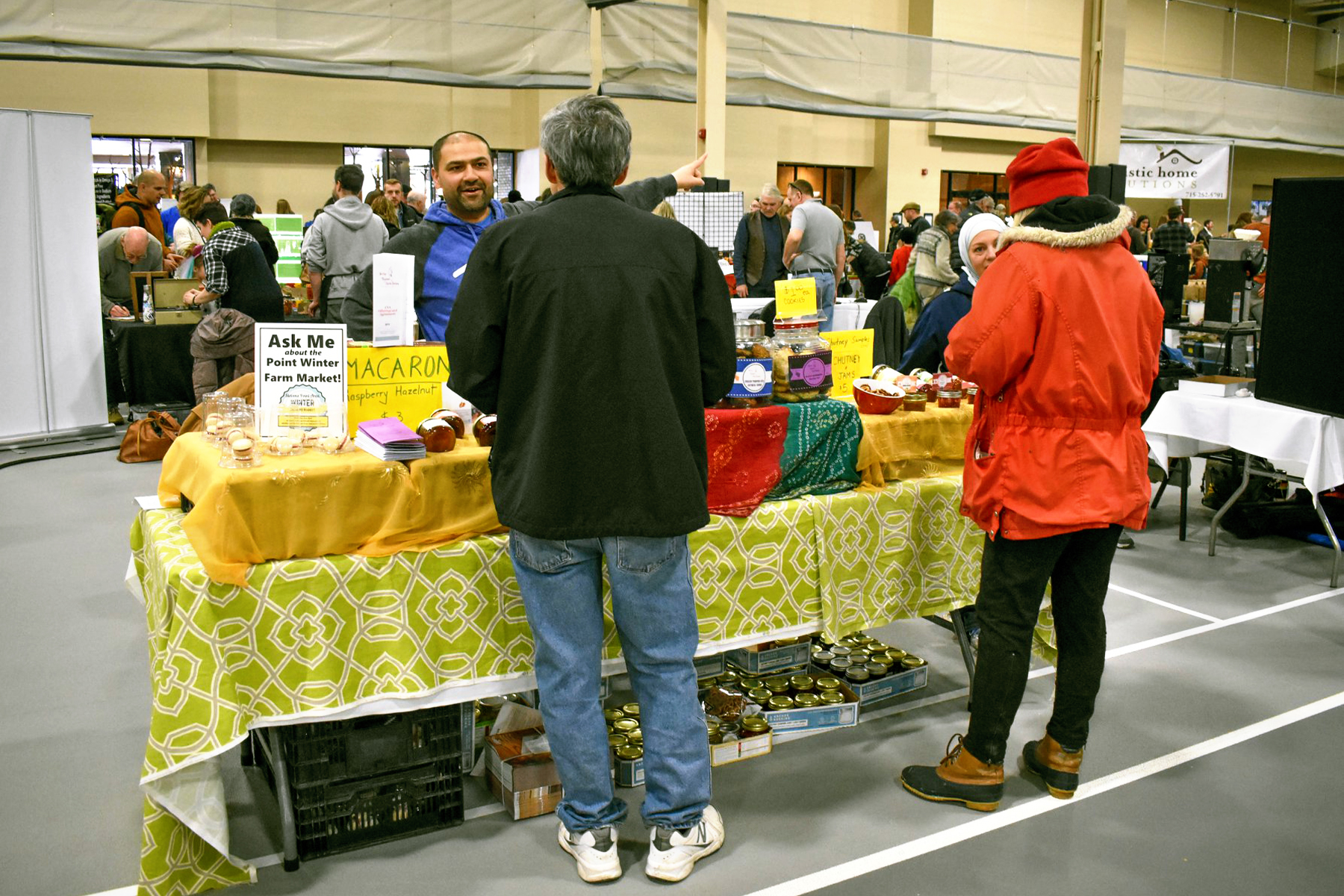
One of these people, who later became her husband Shabbar, “was very patient with me.” And eventually she came to feel that Islam offered her something that Christianity did not. “The Quran is a guide to life in such a way that I did not find the Bible to be,” she said.
At the time, Mrs. Razvi’s mother was a Catholic-school teacher. However, her family was supportive and accepting. As far as they were concerned, “I was still Alicia being Alicia.” Mrs. Razvi gave herself six months to learn how to pray and fast before taking Shahada, her proclamation of faith in Islam. “It’s you standing before witnesses saying, ‘I believe there is no God but Allah and Mohammed is the last messenger.’” At that point, she says, “I had left my previous lifestyle behind.”
However, there were challenges ahead. Mrs. Razvi did not plan on becoming a farmer when she graduated from college. Her passion, she says, was elementary education, and she worked as a second-grade teacher before quitting to raise her children. In 2012, when the Razvis had been married nine years and the youngest of their three children was still a baby, Shabbar Razvi was diagnosed with acute myeloid leukemia.
Mr. Razvi spent six weeks at the Marshfield Clinic to prepare for the stem-cell transplant. “People helped me care for my kids and I cared for him each day in the hospital.” his brother in Chicago was a match, so they moved there and stayed with their in-laws for the next five months, while Mr. Razvi received the transplant and recovered, a recovery that included 100 days of isolation.
When the family moved back Stevens Point to restart their lives, “He [Shabbar] was great. I was kind of a mess. . . Anytime he got sick, I freaked out.” And, she says, “Food just became really important to us. Shabbar had so much chemo and radiation to kill that cancer to prepare for the transplant, we just needed to ensure that everything he put in his body was clean.”
The couple bought a two-acre, agriculturally zoned lot on the outskirts of Stevens Point, and Alicia began homeschooling her children “so we could contain the germs” that her husband was exposed to. Alicia became a master gardener and joined the local chapter of the National Farmer’s Union. She currently serves as president of the Wood-Portage-Waupaca chapter, having been elected to three consecutive terms.
Mrs. Razvi’s faith has sustained her through it all, particularly the words bismillah hir rahman nir Raheem. “In our family, we say this before we start the car in the morning,” she says. “We say this before we plant our seeds, before we do something that we’re a little worried about.” For her it means that, “the thing we are about to do is for God, that God is most beneficent.”
And the farm’s name? “When we moved to this property, deep in the adventure days of finding out the hidden treasures, wooly thyme was growing wild [here]. If you tread on [wooly thyme], it will grow back. I love the idea of resiliency, that if you are knocked down you bounce forward.”
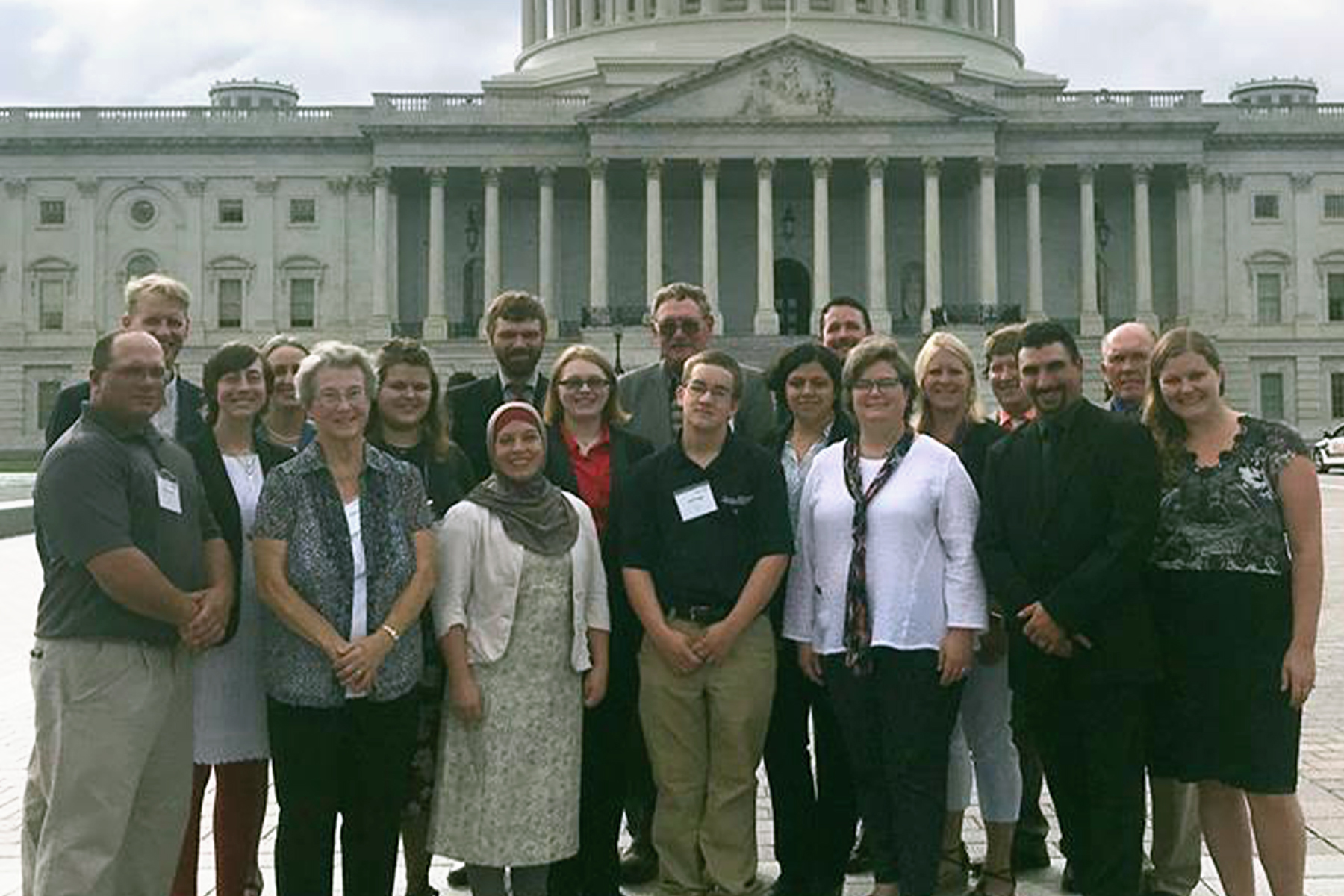
© Photo
Courtesy of Alicia Razvi
